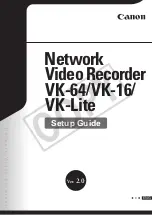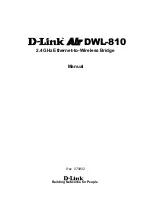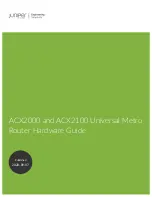
AP-51xx Access Point Product Reference Guide
1-2
The
access point
(AP) provides a bridge between Ethernet wired LANs or WANs and wireless
networks. It provides connectivity between Ethernet wired networks and radio-equipped mobile units
(MUs). MUs include the full line of terminals, adapters (PC cards, Compact Flash cards and PCI
adapters) and other devices.
The access point provides a maximum 54Mbps data transfer rate via each radio. It monitors Ethernet
traffic and forwards appropriate Ethernet messages to MUs over the network. It also monitors MU
radio traffic and forwards MU packets to the Ethernet LAN.
If you are new to using an access point for managing your network, refer to
Theory of Operations on
page 1-20
for an overview on wireless networking fundamentals.
1.1 New Features
With this most recent 2.0 release of the access point firmware, the following new features have been
introduced:
•
Adaptive AP
•
Rogue AP Enhancements
•
Bandwidth Management Enhancements
•
Radius Time-Based Authentication
•
QBSS Support
Legacy users can upgrade their firmware image to version 2.0. to benefit from the new features
described in this section. For information on upgrading the access point’s firmware image, see
Updating Device Firmware on page 4-49
.
1.1.1 Adaptive AP
An
adaptive AP
(AAP) is an AP-51XX access point that can adopt like an AP300 (L3). The management
of an AAP is conducted by a switch, once the access point connects to a Motorola WS5100 or
RFS7000 model switch and receives its AAP configuration.
An AAP provides:
•
local 802.11 traffic termination
•
local encryption/decryption
•
local traffic bridging
•
the tunneling of centralized traffic to the wireless switch
Summary of Contents for AP 5131 - Wireless Access Point
Page 1: ...AP 51xx Access Point Product Reference Guide ...
Page 3: ...AP 51xx Access Point Product Reference Guide 72E 103901 01 January 2008 ...
Page 4: ......
Page 44: ...AP 51xx Access Point Product Reference Guide 1 28 ...
Page 76: ...AP 51xx Access Point Product Reference Guide 2 32 ...
Page 92: ...AP 51xx Access Point Product Reference Guide 3 16 ...
Page 588: ...AP 51xx Access Point Product Reference Guide 8 254 ...
Page 610: ...AP 51xx Access Point Product Reference Guide 9 22 3 Define a mesh supported WLAN ...
Page 623: ...Configuring Mesh Networking 9 35 3 Determine the Radio MAC Address and BSSID MAC Addresses ...
Page 653: ...Adaptive AP 10 25 line con 0 line vty 0 24 end ...
Page 654: ...AP 51xx Access Point Product Reference Guide 10 26 ...
Page 666: ...AP 51xx Access Point Product Reference Guide A 12 ...
Page 690: ...AP 51xx Access Point Product Reference Guide C 4 ...
Page 696: ...AP 51xx Access Point Product Reference Guide IN 10 ...
Page 697: ......
















































